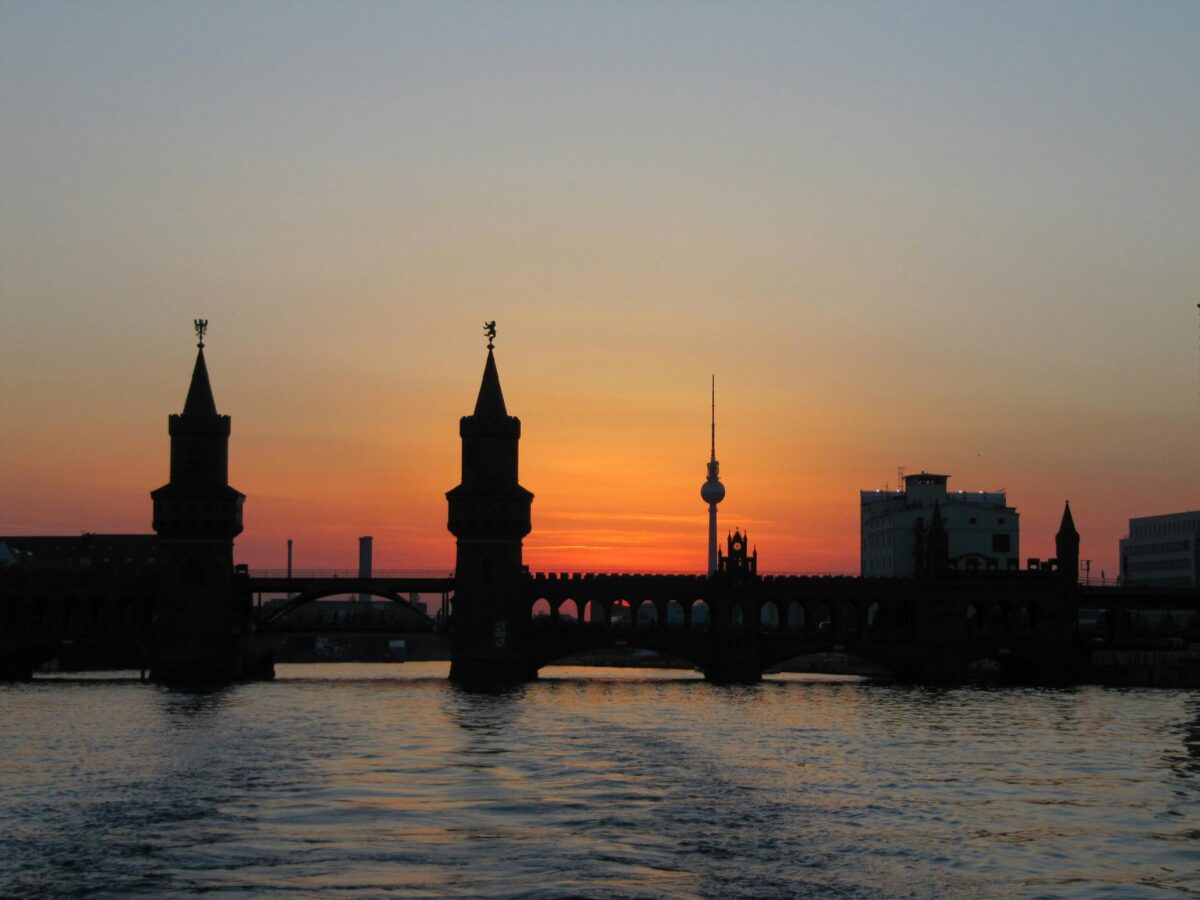Zuvor nannte ich den Begriff Centralhub, per Landkreis. Was stelle ich mir darunter vor?
Zum einen Großen, wie schon angedeutet, im Bezug zu regionaler sowie inter-regionaler Mobilität. Also, öffentlicher Personennahverkehr (ÖPNV) fürs ganze Land konzipiert, wo Landkreise jeweils bei sich vor Ort schauen, ob oder wie z.B. Busrouten Sinn machen, mit welchen man irgendwie zu diesem Centralhub kommen kann, was generell je Landkreis also mindestens die Landkreishauptstadt ist.
Zum anderen geht es aber auch um ein gewisses Nahversorgungskonzept. Dies beinhaltet eine Reihe an Dingen, wie zum Beispiel Kitas, und Zugang zu Bücherei. Für mich fängt es mit medizinischer Notfallversorgung an.
Derzeit beim Bund, da sieht es ziemlich so aus, dass sich die deutsche Nation irgendwie darauf zu verlassen scheint, dass sich die Freiwilligen Feuerwehren kümmern, wenn es zum Beispiel zu einem Zugunglück bei einer Kleinstadt kommt. Dies bedeutet, in vielen Orten gibt es ehrenamtlich-tätige Personen, welche ihre Freizeit (oder vom Arbeitgeber “gegebene” Arbeitszeit) der Allgemeinheit widmen. Dies ist sicherlich nobel, und so ganz auf dem Land irgendwo, da ist bei paar Tausend Einwohnern auch nicht unbedingt viel Einsatz angesagt. Aber wenn man eine Bundesstrecke, wie ein viel-befahrene Autobahn, vor der Nase hat, da kann das schon ziemlich anders aussehen, und auch gewisse Anforderungen an Wissen, wenn es um Fragen geht, wie z.B. wenn Chemikalien per LKW transportiert werden. Und dann schuftet man eine ganze Nacht durch, und dann kommt jemand von außerhalb der Stadt, vielleicht sogar Bundesminister höchstpersönlich, sagt den Einsatzkräften vielleicht sogar paar Worte, und fährt dann wieder ab… und ob vielleicht sogar diese paar Dutzend Mann psychologische Betreuung brauchen könnten, nachdem Stunden damit verbracht haben, menschliche Überreste aus dem Wrack des Bundes zu holen, irgendwie scheint sich da die Allgemeinheit darauf zu verlassen, dass auch solche Fragen die Kleinstadt wohl schon hinbekommt zu stemmen. Also, je Bundesland kann das natürlich etwas anders aussehen. Aber so generell, beim Bund gibt es Berufsfeuerwehr nur in größeren Städten, und aber selbst dort nicht unbedingt in einem Umfang, mit welchem auch alle RTW-Einsätze abgedeckt sind, und neben freiwilligen Feuerwehren gibt es auch charitative Organisationen, welche mehroderweniger mit einspringen, wie z.B. die Malteser.
Im Großen und Ganzen, ist dieses Thema in BRD nicht so eine Krise, wie es vor einiger Zeit noch in England war (mit Stunden Wartezeit, bis nach Schlaganfall und Notruf mal ein RTW kam, und dann noch Wartezeit bei Notaufnahmen, u.a. weil die Krankenhäuser voll belegt waren, mit Patienten, welche auf einen Platz im Pflegeheim angewiesen, und kein solcher).
Aber ich finde es so nicht gut genug, auch schon aus dem Blickwinkel dessen, dass eine Million an Mitgliedern der Freiwilligen Feuerwehren da von ihrem Leben (wie Freizeit) der Allgemeinheit mehroderweniger was aufopfern, während es auf Seite der Allgemeinheit so ziemlich als Selbstverständlichkeit genommen zu werden scheint, dass mal bitte jemand Zack-zack und dies und so.
Und in dem Sinne, Long Stories short, je Landkreis, mindestens in oder bei der Landkreishauptstadt, bin ich so ziemlich für eine Berufsfeuerwehrstelle “Erster Kategorie”. Ob insbesondere Personalkosten dann vom Landkreis (z.B. innerhalb einer Council Tax für den Kreis) oder vom Parlament getragen werden, ist offen, beziehungsweise meiner Ansicht nach halt ein Thema zwischen den Parteien. Für mich ist da erstmal nur von Relevanz, dass die Feuerwehrwache auf staatlichem Grundstück bzw. Gelände steht, welches selbst vom Nationalparlament höchstpersönlich nicht einfach so privatisiert werden kann, wenn der Kontext nicht solcher, dass zum Beispiel in 100 Jahren vielleicht mal eine neue Feuerwehrwache nahe dran gebaut wird, und die alte Wache geschlossen, und Unsinn es dort zum Spukhaus verkommen lassen, wenn die Fläche anderweitig genutzt werden kann.
Und die Feuerwehrwache der Ersten Kategorie, ist dann also Zentrale für den Landkreis, was so Zuständigkeit bei den Feuerwehrsachen im Alltag betrifft. Und all diese Wachen und ggf. auch inklusive Wachen zweiter Kategorie, also im Landkreis wie Außenstellen der Landkreiszentrale, welche nicht nur ein Posten sind, mit RTWs und feinem Gerät zu versorgen, da machen sich paar Ausgaben bemerkbar, welche ich unter einer Nationalausgabe zusammenfassen würde (womit also Landkreis nicht die finanzielle Ausgabe für die Beschaffung der Fahrzeuge und ähnliches hat). Und dann noch zu ob neues oder bestehendes Gebäude genutzt. (Und statt “Berufsfeuerwehr”, kann natürlich auch über andere Benennung in dem Sinne geredet werden, wie z.B. “institutionalisierter Zivilschutz”.)
In ähnlicher kann diese “Centralhub”-Konzept, auch bei weiteren Dingen verwendet werden. Z.B. bei Krankenhäusern, könnte man sagen, dass ob nun landkreis-eigenes, oder nationales, oder privates Krankenhaus, je Landkreis sollte es mindestens ein Krankenhaus “erster Kategorie” geben, bei welchem alles zu finden, was man so unter Krankenhaus erster Kategorie versteht.







